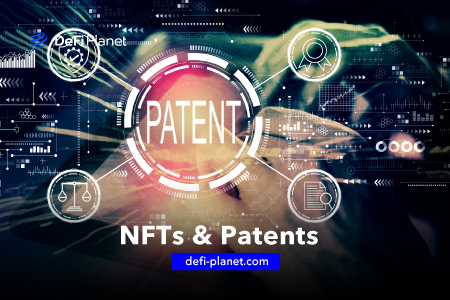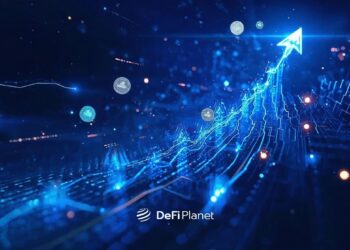The Non-Fungible Token (NFT) space is buzzing with activity. Musicians are minting their songs, albums, and collectibles as tokens and selling them off to their fans. Artists are turning their masterpieces into NFTs and auctioning them on marketplaces like OpenSea and Rarible. Companies are thinking of ways to embed NFTs into their operations, as an alternative stream of income. Some government authorities are using NFTs to raise awareness in a sector. The use cases of this technology cut across almost every sector. With the advancement of NFTs and their growing popularity globally, different issues have arisen concerning their implications for patent law.
NFTs and Intellectual Property Rights
An NFT usually has an underlying asset. For example, a real estate company may mint an NFT that contains the data of a title deed to a house. Two interpretations exist for a situation like the aforementioned. In the first scenario, the NFT could confer on the buyer rights to the usage of the underlying asset, which is the property associated with the title deed. Secondly, the token may merely give ownership to the NFT but not to the underlying asset. During the purchase of this type of token, it is important that it is clarified at the point of sale.
Sometimes, the creator of an NFT through the sales of the token transfers intellectual property rights to the buyer. This can only occur when the seller is the owner of the intellectual property rights of an asset.
In the case of an artist that wants to sell an NFT of their artwork, they can decide to sell the intellectual property rights of the underlying artwork to the buyer, meaning that the latter can use the image in whatever way they wish, without approval from the original artist. On the other hand, the artist may be merely selling a digital painting to the buyer, without the right to reprint it or use it in any other way.
A clearer example can be seen in the case of a musician selling their album as NFTs to fans. The fans can listen to the songs, but the content can’t be incorporated into a movie or used in another way without express approval from the musician or his/her representatives.
In the case that a creator assigns the intellectual property rights of their creation via their NFTs to a buyer, it is crucial that this transfer be made in writing. The writing could be done physically on a traditional contract or could be embedded in a smart contract. Without this, the buyer should not assume that the purchase of an NFT automatically confers them with the intellectual property rights to use the underlying asset in any way they deem fit.
Selling both the underlying asset and an NFT in one transaction is not common, at the moment, as it exists in pockets. An example is a real estate broker, Shane Dulgeroff that wanted to use the NFT hype to sell a real house in California as an NFT. Anyone that bought the NFT would be buying both it and the underlying asset, which is the house. During the auction period on OpenSea, the house was listed for 48 ETH. At the end of the auction period of seven days, no one bid for it.
Assuming the NFT had been purchased, it would have been utilized as a digital proof of ownership. Before purchasing an NFT that comes with an intellectual property right attached to it, some crucial details have to be considered. Does the seller have the right of ownership of the underlying asset? Can they take possession of the asset?
How Might NFTs interact with Patent Law?
NFT and its underlying technology, blockchain, have affected the laws and decrees of different regions. Some countries are making alterations to their laws to regulate these innovations. At the moment, the transfer of an average NFT means the transfer of ownership of the token and not the underlying asset. This means that if a musician transfers NFTs to their fans, they are merely giving the latter access to listen to the song on the NFT, but not to embed it in a movie or other creations without the permission of the artist or their representatives.
With the minting of patents as NFTs and commercializing them, it is expected that patent laws in countries will change to either allow this or forbid it. If the trend of governments creating regulations to guide the blockchain finance space is anything to go by, the patent law will change to cover these grey areas.
Use Cases for NFT in Patents
Though the NFT space is relatively novel, it has been creating opportunities for patent creation, transfer, and administration.
- Fundraising purposes
Regularly, fundraisers are done for different purposes and causes. In the academic world, a fundraiser may be done to fund a research study or group. Charity organizations may use fundraising events to tackle an environmental issue. In the past, celebrities have minted NFTs and sold them to the public as a fundraising tool for a cause.
UC Berkeley is one of the organizations that have used NFTs as a fundraising tool. It auctioned NFTs that are linked to the digital patent disclosure documents of a groundbreaking research project. The purchase of the NFT didn’t transfer the IP rights to the buyer, instead of the purchaser merely owns the NFT and not the underlying asset. This was meant to raise funds to sponsor the university’s research projects.
- Patent Creation
NFTs have birthed a set of patents that didn’t exist in the past. Some companies are using NFTs to track the authenticity of a product. Piracy and counterfeiting make brands lose billions of dollars annually. With the creation of this type of unique tokens, brands can attach NFTs to their products, and potential buyers may view them to clarify the authenticity of the item. In the case of Nike, it created the CryptoKicks patent that confers a buyer an NFT when they purchase a pair of shoes, which they can transfer when they want to resell it. Apart from that, Nike permits holders of CryptoKicks to mint a unique shoe design.
- University tech patents
Universities are known for research projects. Usually, these research projects tend to offer rewarding innovations that may be used in real life. Big companies and governments fund these universities to create developments in different sectors. When a life-changing innovation is created, it is crucial for the university to patent it and manage its intellectual property portfolios. Different universities have been researching how to use NFTs to manage their intellectual property rights and patents. University of Kentucky and IPwe created an Advisory Committee for University Technology Transfer to this effect. The aim of this committee is to analyze how NFTs could better protect the IP rights of Universities while offering beneficial commercial opportunities.
Using NFTs to Track Patent Ownership and Transfers
Transparency is a key element of open, permissionless blockchain platforms which attract people and companies. On a public blockchain, anyone can view a transaction between multiple addresses, except where a privacy tool is utilized. Blockchain technology is designed to aid the tracking of transactions in a network. The history of an NFT patent, from the original owner to the recent owner may be tracked through the network. Once the owner of a patent mint it as an NFT, the patent NFT system will make it easy for anyone to track the history of transactions and owners.
When the commercialization system by the likes of IPwe are fully developed, it is expected that universities and companies may be able to lease their patent or sell them to others as NFTs for a fee. Potential buyers will be able to track if the selling party is the original owner or genuine seller based on the history on the blockchain.
What Does The Future Hold?
The blockchain industry, especially the cryptocurrency space, has been under intense watch by regulators recently, which was not always the case from the beginning. Public policy creators and local regulators are debating and releasing guidelines concerning the operations of cryptocurrency, exchanges, and decentralized finance platforms in their regions.
If the trend is anything to go by, the NFT sector will soon be under the watchful eyes of regulators. In no distant time, it is expected that governments will release laws and guidelines to guide the creation, minting, and usage of NFTs in their regions. This may affect the way this unique type of token interacts with intellectual property rights and patent laws.
Before a functional NFT patent system blossoms, the creators may have to liaise with local regulators to ensure that it is in line with guidelines.
If you would like to read more articles like this, visit our Website. You can also follow DeFi Planet on Twitter, Facebook, Instagram, and LinkedIn.





















